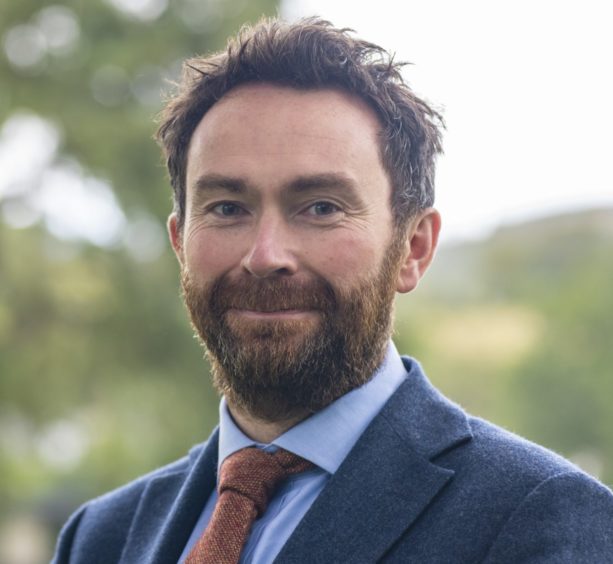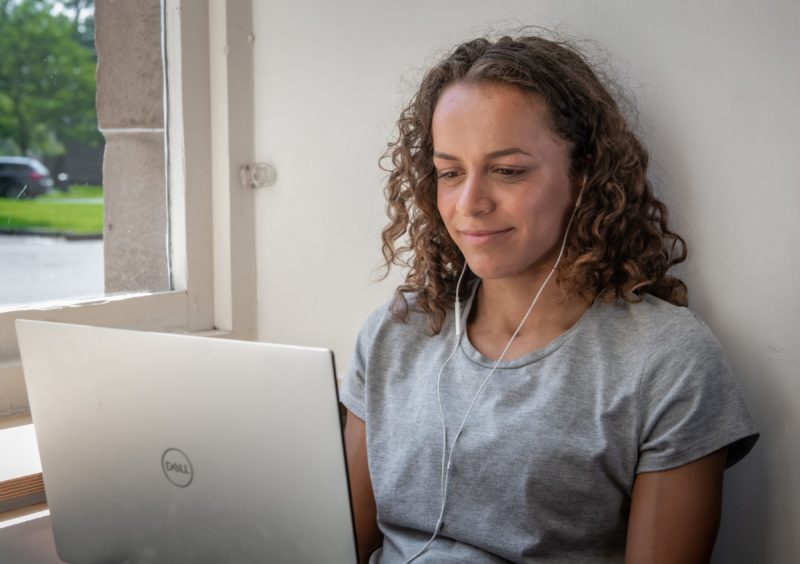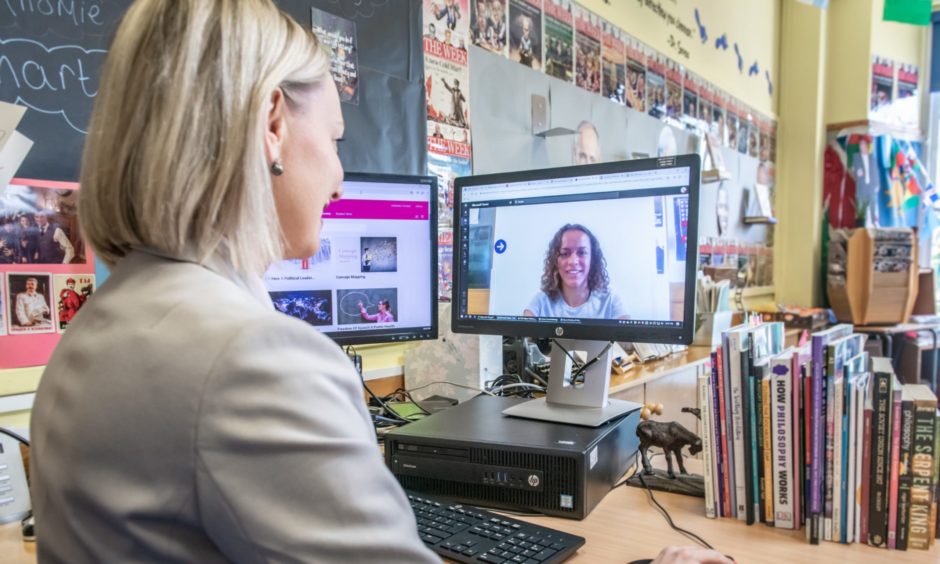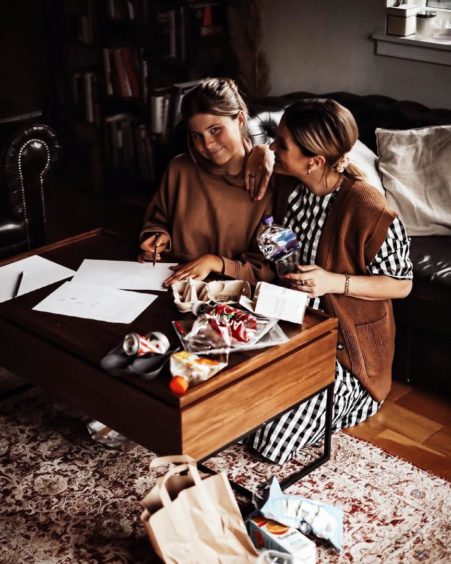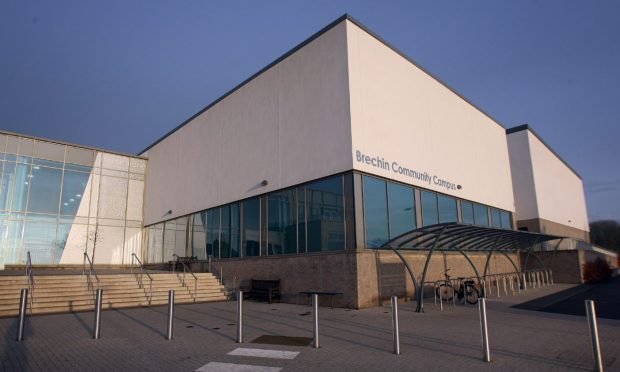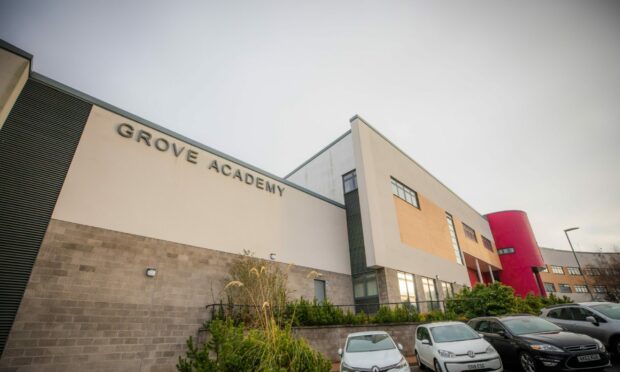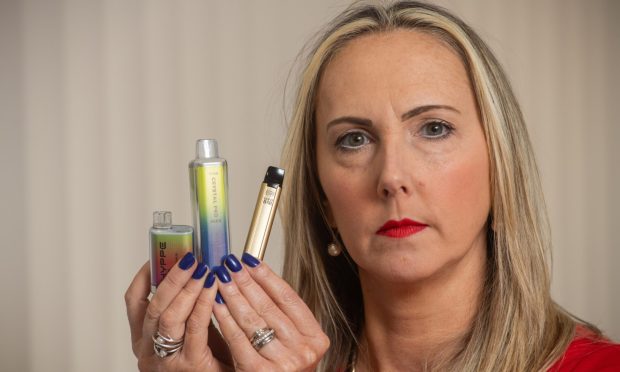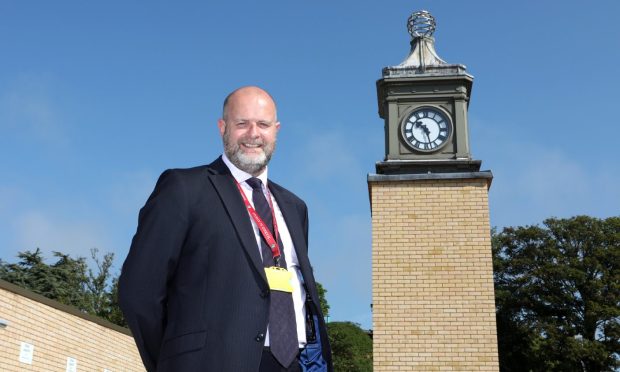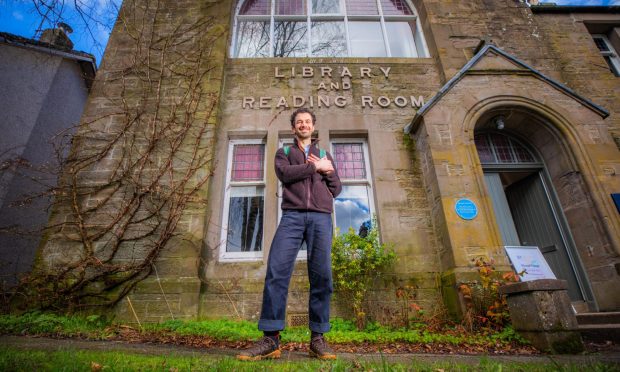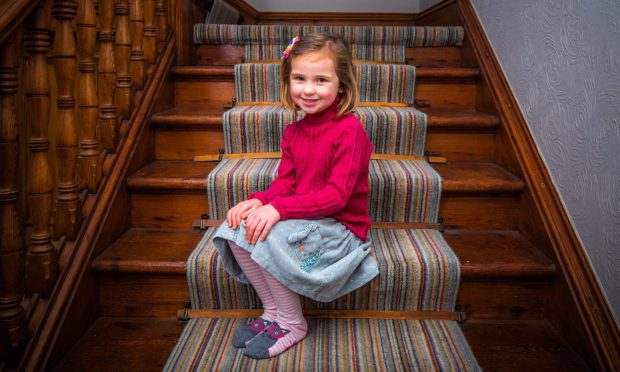Dollar Academy has launched a free open-access online learning platform to provide young people a new way to learn. But can it inspire wider change in the delivery of Scottish education? Michael Alexander hears more.
Dollar Academy rector Ian Munro firmly believes that education can be a transformational experience for young people.
But should Scottish education be reformed so that an “unhealthy obsession” with exams, assessments and targets are consigned to the past?
It’s a question posed by Ian as he spearheads a major industry and education partnership that aims to help reduce the attainment gap in Scottish education.
Launch of FIDA
In May, an open-access online learning platform called FIDA (Futures Institute at Dollar Academy) was launched by the leading independent school, empowering young people, from across Scotland, to learn in new ways through innovative projects rooted in the United Nations’ Sustainable Development Goals (UN SDGs).
It has been created to address three fundamental challenges – sustainability, equitable access to education, and the need for curricular reform.
Welcome to FIDA!
We are delighted to have launched FIDA – an innovative learning platform rooted in the United Nations’ Sustainable Development Goals. @ianhughmunro explains more about FIDA and the online Global Challenges.#education #Innovation pic.twitter.com/hLhzQJaUuh
— The Futures Institute at Dollar Academy (@FuturesInst_DA) May 12, 2021
The platform enables young people to work with experts from industry and universities to better understand, and design solutions to, some of the most complex challenges faced, such as climate change, poverty and social injustice.
It offers a wide variety of ways young people can get involved with a core offering of 17 Global Challenges – one for each of the UN SDGs.
Beacon
Ian hopes the project can act as a “beacon” to inspire other schools in Scotland and he hopes to get the Scottish Government involved.
However, despite his belief in the need for reform, Ian gets frustrated by the negative discourse that often surrounds Scottish education.
“Critics are very quick to look at education in a binary way and say the system is broken,” he says.
“I find that frustrating and I think it’s wrong actually. Thousands of fantastic things happen in all schools throughout Scotland every day.
“But equally I do think the system can evolve and should evolve.
“I think there are good models of that in other countries around the world, and I suppose one of the reasons that FIDA has come into being is that frustration – frustration of people talking about the system being broken but they won’t do anything to fix it. That frustration has been part of the driver.
“But another area that’s pushed it over the line and got it going is the need for curricular reform.
“I think in Scotland we have an unhealthy obsession with assessment. I’m not saying exams are a bad thing. For some kids they are great.
“But if you are not an exam person, does that mean your life should be written off? No. But how can we create other opportunities for students to show how creative, thoughtful, bright and clever they are?”
Innovation and imagination
Before arriving at Dollar in 2019, Aberdeenshire-raised Ian held leadership positions at George Heriot’s (his alma mater), Gordonstoun and Shiplake College.
He became the youngest serving rector of an HMC school in the world when he was appointed by Kelvinside Academy, where he gained a reputation for innovation and imaginative educational development.
Early in his career as a biology teacher, he started thinking about how to approach education differently.
He tells the story of the day when his then class of S2 pupils looked out the window at birds stamping their feet on the ground after the rain, and they asked him: “Mr Munro, do you reckon they do that so the worms come up?”
Ian admits he wasn’t sure.
But it inspired the pupils to build an electro-magnet which, the more it vibrated, the more worms they’d bought from a composting shop came to the surface.
“It was a good project that won them the Scottish Science Fair and got them down to the UK Science Fair,” he says.
“But it just struck me that through the project they learned so much about collaboration, entrepreneurship and working with people inside and outside the school.”
Ian cites the worms project as an early example of how by being imaginative, working hard, and “taking a step back”, great real-life educational experiences can be achieved out-with the current national curriculum.
Collaboration
However, another “powerful moment” came while doing research at Cambridge University when he came across a project in Boston, USA – a full time innovation school for high school students where their curriculum is based entirely around real world challenges.
Instead of courses, students work collaboratively with business people and academics on open-ended projects. Instead of subjects, everything is fused together. Instead of classrooms they have open space studios and instead of “artificial” lesson periods, students spend weeks immersed solving real-life problems.
At the end students don’t get grades but instead compile ‘real-world’ portfolios that might secure them a work placement or internship.
“You might go in and you might build a robot to pull plastic out of the ocean or you might create a physical piece of theatre about homelessness,” says the Edinburgh University zoology graduate, who is a Fellow of the Royal Society of Biology and studied at the Harvard University Graduate School of Education.
That interest in alternate curriculum design led to the establishment of the NuVu innovation school at Kelvingrove.
However, it’s also led directly to the establishment of FIDA where Ian is now combining his interest in curriculum reform, sustainability areas and widening the charitable footprint of his school.
Built in partnership with industry and universities – including renowned textiles manufacturer Johnstons of Elgin, award-winning global architectural studio Grimshaw, and the Winton Centre for Risk and Evidence Communication, University of Cambridge – FIDA’s open-access Global Challenges encourage students to apply critical thinking and creative problem solving to tackle real-world issues.
• Clean Hands, Good Health •
The Covid-19 global pandemic has been a powerful reminder of just how crucial hand hygiene is.
This free Global Challenge involves designing your own sustainable hand-washing device.
To join the challenge, please visit our website! pic.twitter.com/bwkRYP9qGD
— The Futures Institute at Dollar Academy (@FuturesInst_DA) May 19, 2021
Each one is centred around a core principle of helping young people develop the skills required to help build a more sustainable future.
The first five challenges are now freely available via the website and take from three to eight hours to complete.
They range from ‘Zero Hunger’, which sees Masterchef finalist Jilly McCord help children create a new recipe based on local, sustainably-produced foods; to ‘Future Plastic’, where pupils make their own bioplastic at home and design a novel packaging solution that could help reduce plastic waste.
In addition to receiving a certificate upon completion, students who submit promising work will have the opportunity to gain internships, work experience and participation in mentoring programmes.
In an effort to further reduce the attainment gap in Scottish education, FIDA also offers free SQA courses, starting with Higher Politics and National 5 Economics, which will allow pupils who cannot access these courses via their own schools, to study for the qualification online, supported by regular interaction with a specialist teacher via video call.
Pilot projects
Later in the year, FIDA will offer a programme of online Sustainability Summits, beginning with a partnership with Sustainable Fashion Week in September and a UK Education and Sustainability Leadership Summit in October.
There will also be a Teacher Toolbox, which will provide free resources for teachers.
FIDA follows the success of Dollar Academy’s online open-access pilot Dollar Discovers in 2020.
The launch of this pilot coincided with a report funded by the Scottish Government and Joseph Rowntree Foundation, and published by the Edinburgh Poverty Commission, that called on independent schools to take “more action to share teaching, infrastructure and networks with local state schools and community groups – including for example, digital learning links to widen subject choice where it is currently restricted, and access to a wider range of employers and individuals who could make valuable connections with state schools”.
FIDA builds on an earlier pilot to offer a wider range of courses, projects and opportunities free of charge to children across Scotland.
‘Absolute godsend’
David Thomson, head of Modern Studies at Dundee’s Morgan Academy, which was part of the Dollar Discovers pilot, says that to be given access to this resource had been an “absolute godsend”, with very positive feedback from pupils who took part.
Describing the intentions of Scotland’s Curriculum for Excellence (CFE) as “really good” and agreeing that FIDA is “very faithful to the overarching intentions of CFE”, Ian concedes that, as an independent school, it’s “perhaps easier” for Dollar to move quickly and launch projects like this.
He emphasises that he also knows of many colleagues in the state sector running some incredible partnerships with industry.
It’s all about empowering young people to be tolerant and respectful in a fast changing world – allowing them to see there is a “world of opportunity” and making them realise they can “be the change and make a positive difference” in the real world.
However, by “taking a step back”, Ian hopes ongoing discussions about the future of education can be had and, most importantly, that action might be taken.
To find out more about FIDA and its free online resources go to www.fida.world

